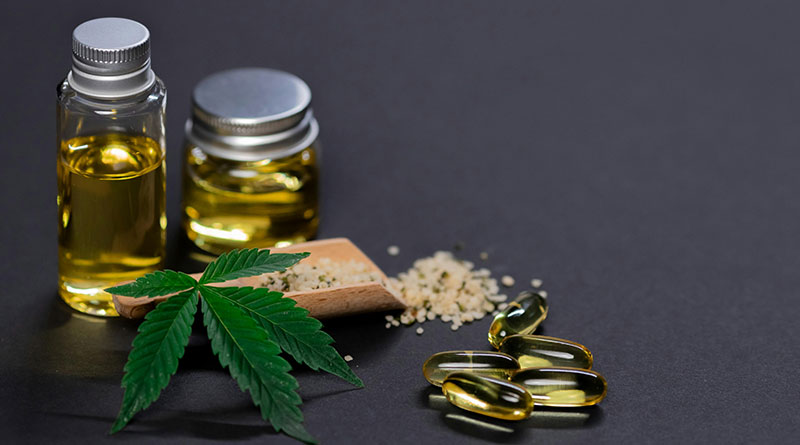Over 2 million people worldwide have multiple sclerosis, a central nervous system illness. Many MS patients weigh side effects against medication or complementary therapy. Many MS sufferers use medical cannabis, CBD, or both to treat muscle spasticity.
Most people don’t know if CBD works as an MS treatment, although the study is continuing—current CBD and MS information.
What’s CBD?
CBD is one of numerous Cannabis sativa cannabinoids; medical cannabis contains CBD and THC. The primary difference is that CBD is not psychotropic like THC.
THC is illegal in the UK because it alters consciousness. CBD—with minimal THC—can and is wildly popular.
What is MS?
MS is a nerve system illness. Among the most prevalent forms of neurodegeneration in younger people, symptoms often manifest between the ages of 20 and 40.
Neural impulses are electrical messages between neurons. Insulate nerve fibres like wires to prevent electrical impulses from escaping. Nervous system insulator myelin does this. Myelin aids signal transmission in healthy neurological systems.
MS causes myelin loss. Slowing nerve impulses reduces physical and cognitive performance. Demyelination makes nerves more susceptible to injury, inflammation, and neuronal death.
Loss of myelin—how? MS is an immune system issue, specifically an autoimmune disease. Our immune cells mistake myelin proteins for a biological threat and tear them down.
What Are MS Symptoms?
The neurological system controls many body processes. Therefore, a malfunction has wide-ranging effects. The symptoms of MS include:
- Mobility issues
- Spasticity
- Long-term discomfort
- Fatigue
- Visual issues
- Cognition impairment
- Low spirits
No cure exists for MS. Current treatments manage symptoms and prevent relapses but do not slow disease development. In addition, undesirable side effects limit them. The increased risk of reliance and tolerance need more effective MS treatments.
So, may CBD, which modulates ECS activity, help MS symptoms?
How it works?
CBD affects mood, hunger, sleep, pain perception, memory, and more through the ECS. To maintain equilibrium, the ECS coordinates immune and neurological system activity. In immunological dysfunction, ECS modulation may be beneficial.
The ECS has two primary cannabinoid receptors, CB1 and CB2. Although THC directly activates both receptors, CBD operates differently. CBD can activate cannabinoid receptors, but researchers have shown that it modulates the ECS indirectly.
CBD is medicinal, but experts are still studying its effects. CBD can treat rare epilepsy, according to thorough studies. It may treat anxiety, insomnia, chronic pain, and neurodegenerative disease.
May CBD assist MS patients?
MS treatment research on cannabis spans over two decades. Thus, most cannabis research examines CBD and THC together.
MS sufferers use cannabis-based drugs. Thus, anecdotes of its benefits abound. Combining CBD and THC reduces pain, muscular spasms, and weariness significantly.
CBD is non-psychotropic and is legal to buy and sell in the UK, unlike THC. CBD alone may help MS symptoms.
Inflammation
Myelin injury by the immune system damages nerve fibres. This causes neuroinflammation.
Normal inflammation helps the body heal by clearing the injured site. In MS, inflammation threatens the nervous system. T lymphocytes penetrate the brain and overproduce inflammatory chemicals, creating a cycle of inflammation.
CBD reduces an autoimmunity-promoting biochemical pathway in EAE models. CBD may even prevent or treat MS symptoms.
Pain
Chronic neuropathic pain is frequent in MS due to nerve degeneration. While cannabis-based medicines seem to help pain, CBD alone is understudied.
CBD may relieve inflammatory and neuropathic pain, according to emerging data.
CBD’s pain-relieving effects in MS patients need further study but could be useful.
Mobility
CBD’s capacity to control pain, reduce muscular stiffness, and combat fatigue may help MS patients’ mobility, according to indirect evidence.
Despite the need for clinical research, these findings imply that CBD may be a beneficial MS supplement.
Mood
Having a debilitating disease strains mental health. The MS Society reports that 50% of MS patients have depression, so CBD and MS work together to solve it.
CBD improves anxiety and sadness, unlike powerful painkillers. It affects serotonin receptors. Serotonin, the ‘happy hormone’, supports mood in the brain. CBD can improve mood by enhancing brain serotonin signalling.
CBD reduces depression in animal models but not humans. CBD may also reduce mental health patients’ despair and anxiety.
Can MS patients safely use CBD?
According to the WHO, CBD is safe and well-tolerated, even at large doses. Long-term use can cause nausea, appetite problems, and exhaustion, but these side effects are infrequent and minor compared to many prescription medicines and THC.
CBD can interact with liver-damaging drugs. If you think you or someone you know would benefit from CBD, talk to a doctor before trying it.
Finding the proper CBD
Many methods to take CBD. Broad-spectrum, full-spectrum, CBD isolation. Oils, pills, vapes. The number of cannabinoids is nearly limitless, which can confuse newcomers. Read our beginner’s guide to CBD to grasp the minor variations between CBD products.
To clarify CBD and MS, you must know which CBD is best. The most common ways to take CBD and why they may help MS patients are:
- Oil
Dropping CBD Oil beneath the tongue is common. This approach lets CBD enter the bloodstream fast, delivering instant advantages. MS flare-ups are best managed with dosage and frequency control.
- Oral
Oral CBD, usually in capsules or gummies, provides a constant and handy dose without a harsh flavour like CBD oil. CBD capsules have lower amounts and take up to 2 hours to work, but CBD accumulates in your system and builds its benefits when taken daily.
- Vape
Vaping CBD is fast-acting. So, it can relieve pain quickly, even on the run. Vapes can deliver significant levels of CBD throughout the day, which may help on painful MS days. Vaping’s long-term consequences are unknown, so shop for your next CBD product with caution.
Conclusion
MS can severely damage the quality of life. It’s partially why so many seek respite from its symptoms. CBD and MS research seems promising. Some people report reduced pain and spasticity from CBD supplementation.
CBD-derived medications may regulate disease progression in the future by reducing inflammation.
Sahil Sachdeva is the Founder of curemedoc.com and a Digital Marketing professional with years of experience. If you need help in Content writing and want to increase your website ranking, connect with him, as he has some premium websites where you can share blogs with DoFollow links and increase your website’s ranking on Google.





